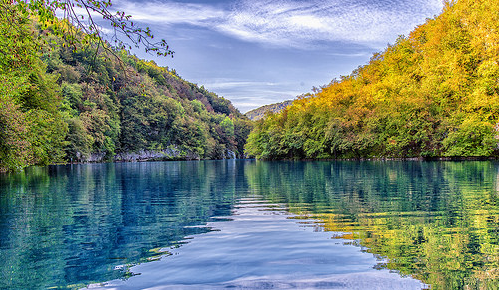
It’s a problem that concerns all 500 million Europeans. Floods, droughts, water scarcity have dramatically increased in number and intensity in the UE due to climate change. How we can protect and manage water resources in order to maximize their efficient utilization while minimizing the present-day negative aspects? The PROLINE-CE project wants to address these issues by the implementation of innovative best practices and measures of land use and water protection in pilot actions.
Several million kilometres of flowing waters and more than a million lakes cover the European continent. Clean water is of strategic importance and the greatest treasure nowadays. How we can protect and manage water resources in order to maximize their efficient utilization while minimizing the negative aspects such as pollution, flood and drought?
The Interreg project PROLINE-CE wants to address this issue while aiming at improving the protection of drinking water resources as well as protection measures against floods and droughts in an integrated land use management approach.
The newly elaborated measures will be implemented and tested in designated pilot areas. Seven the central European countries involved in the study (Austria, Croatia, Germany, Hungary, Italy, Poland, Slovenia, Slovakia), and a project partnership comprising 18 partners (lead partner: Austrian Federal Ministry of Agriculture, Forestry, Environment and Water Management), such as governmental institutions, water suppliers and research institutions.
The preliminary studies realized to evaluate present-day conditions underlined that the great hazards of today have become such dangers due to climate change that is shaping our landscapes and lives: regardless of the fact that in general Europe has adequate water resources, floods, droughts, water scarcity are becoming more frequent and intense.
Annual flood losses can be expected to increase fivefold by 2050 and up to 17 fold by 2080. Water availability problems frequently appear in areas with low rainfall but also in areas with high population density, intensive irrigation and/or industrial activity.
Over the past thirty years, droughts have dramatically increased in number and intensity in the EU. The number of areas and people affected by droughts went up by almost 20% between 1976 and 2006. It was estimated that by 2007, at least 11% of Europe’s population and 17% of its territory had been affected by water scarcity, putting the cost of droughts in Europe over the past thirty years at EUR 100 billion. The Commission expects further deterioration of the water situation in Europe if temperatures keep rising as a result of climate change. Water is no longer the problem of a few regions, but now concerns all 500 million Europeans.
All the project partner countries have had problems with floods and/or drought for the past decades, but due to global climate change, the effects of these naturally occurring processes have been more severe throughout the years.
Austria, Croatia, Germany, Hungary, Italy, Slovenia are facing serious issues due to floods, while droughts primarily affect the Mediterranean and South-eastern countries of the project, that is Italy, Slovenia, and Hungary.
Another key issue is related to water management and the approval of adequate flood/drought risk management plans. Some countries show a lack of flood/drought risk assessments and ad hoc policies (i.e. Hungary, Poland), and in some countries there’s a problem of tasks and competences, with authorities and institutions having overlapping responsibilities.
The project will focus on the preparation of transnational guidelines regarding an efficient protection of drinking water resources. This objective should be achieved through the development of sustainable and appropriate land use and management measures aiming at the mitigation as well as reduction of droughts and floods under the challenges of climate change.
An important aspect of this project, will be to strengthen and foster close cooperation between all involved countries, regions and municipalities regarding the development of joint, sustainable strategies for the future.
The CMCC Foundation is partner of the project with three CMCC divisions involved: REMHI, RAAS and IAFES. The CMCC scientific leader of the project is Paola Mercogliano, REMHI Division Director; the project manager is the CMCC researcher Guido Rianna (REMHI).
The CMCC will be mainly involved in the set-up of pilot-specific management practices and in the implementation of best practices for water protection in pilot actions.
The CMCC’s experience will allow in particular to implement a pilot action in the Po river system. CMCC researchers will realized an integrated evaluation of the impacts of climate change and land use changes on water quantity and quality in the Po river basin.
The case study has been developed in collaboration with Arpae Emilia Romagna.
For more information, visit the official website of the PROLINE-CE project.


